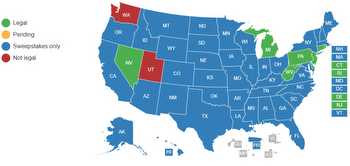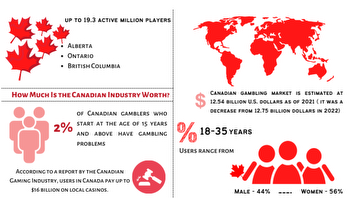India's Gambling Regulation Pros

Online gambling is a controversial topic that has divided opinions among different stakeholders. Some argue that online gambling is a harmful activity that can lead to addiction, fraud, and crime. Others claim that online gambling is a legitimate form of entertainment that can provide economic benefits and social opportunities.
In this article, we will explore how legalizing online gambling can increase player protection and government income, as well as the challenges and risks involved.
Legalizing Online Gambling Can Create a Regulated Industry
One of the main arguments in favor of legalizing online gambling and betting apps is that it can create a regulated industry that can protect players from unscrupulous operators and ensure fair gaming.
Currently, many online gamblers are exposed to the dangers of illegal or offshore sites that may not have proper licenses, security measures, or customer service. These sites may also cheat players out of their winnings, refuse to pay out or use rigged software.
With gambling being legal, governments can establish a framework of rules and standards that online gambling service providers must follow to operate or advertise in their jurisdictions. For example, the United Kingdom Gambling Commission or the Pennsylvania Gaming Control Board in the US are responsible for issuing licenses, conducting audits, enforcing compliance, and resolving disputes in their respective markets. These regulators can also impose sanctions or revoke licenses if online gambling operators violate the law or harm consumers.
A regulated industry can also help prevent underage gambling, problem gambling, and money laundering. Online gambling operators can be required to verify the identity and age of their customers, implement responsible gambling policies and tools, and report suspicious transactions to the authorities.
Furthermore, regulators can collaborate with other agencies and organizations to provide education, prevention, and treatment programs for gambling addiction.
Legalizing Online Gambling Can Generate Tax Revenue and Jobs
Another argument in favor of legalizing online gambling is that it can generate tax revenue and jobs for the government and the economy. Online gambling is a lucrative industry that has grown rapidly in recent years, thanks to the advancement of technology and the popularity of smartphones and tablets.
According to Statista, the global online gambling market was worth $66.7 billion in 2020 and is expected to reach $92.9 billion by 2023.
Governments can tap into the gambling market and collect taxes from online gambling operators and players, should it be fully legalized. The tax rates and systems vary from country to country, but they are usually based on a percentage of the gross gaming revenue (GGR) or the net profit of online gambling activities.
For instance, in France GGR can be as high as 83.5 percent, while in Macau it’s much lower at 39 percent. The UK falls in the middle at 50 percent.
The tax revenue generated from online gambling can be used to fund various public services and programs, such as education, health care, infrastructure, social welfare, and sports development. For example, in Pennsylvania, online gambling taxes are allocated to the Property Tax Relief Fund, the Pennsylvania Race Horse Development Fund, the General Fund, and local governments.
Legalizing Online Gambling Can Face Challenges and Risks
Despite the potential benefits of legalizing online gambling, there are also some challenges and risks that need to be addressed. One of the major challenges is to harmonize the different laws and regulations that exist across different countries and regions.
Online gambling is a cross-border activity that involves multiple jurisdictions and stakeholders with different interests and perspectives. Therefore, it can be difficult to achieve a common understanding and cooperation among them.
For example, in the European Union (EU), there is no uniform legislation or authority that regulates online gambling at the supranational level. Instead, each member state has its national laws and regulators that govern online gambling within its borders. However, this creates a fragmented market that poses challenges for both online gambling operators and consumers who want to access or offer services across different countries.
Another challenge is to balance the interests and needs of different stakeholders, such as online gambling operators, consumers, regulators, law enforcement agencies, civil society groups, and the general public. Online gambling is a complex and dynamic phenomenon that affects various aspects of society, such as the economy, culture, morality, and security, making it challenging to find a fair and effective solution that can satisfy everyone.
A final challenge is to cope with the rapid changes and innovations that occur in the online gambling industry. Online gambling is a highly competitive and dynamic industry that constantly evolves and adapts to the changing preferences and demands of consumers, as well as emerging technologies and opportunities.
Conclusion
Online gambling is a controversial topic that has both pros and cons. Legalizing online gambling can increase player protection and government income by creating a regulated industry that can ensure fair gaming, prevent illegal or harmful practices, generate tax revenue, and create jobs.
However, legalizing online gambling can also face challenges and risks by having to deal with different laws and regulations across countries or regions, balance the interests and needs of different stakeholders, and cope with the rapid changes and innovations in the industry.
Content Produced by Indian Clicks, LLC





































